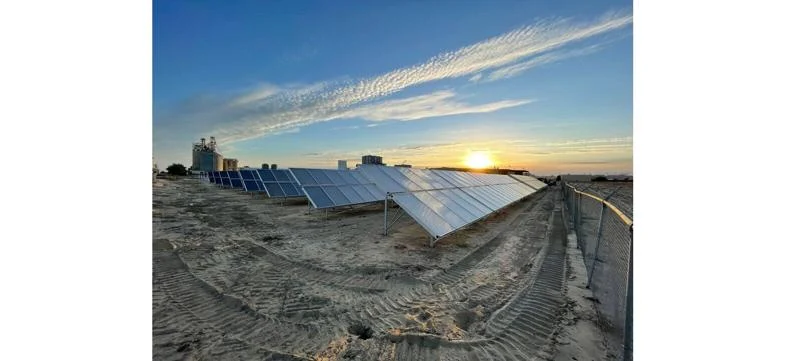As the vote on the “One Big Beautiful Bill” looms, Pennsylvania energy leaders warn that abruptly ending existing tax credits could severely impact the industry, and are urging lawmakers to adopt a gradual phase-out instead.
The Business Council for Sustainable Energy, or BCSE, along with the Clean Energy Business Network, recently hosted a press briefing for industry leaders to discuss how energy tax policy impacts their businesses.
Participants included the Keystone Energy Efficiency Alliance, PA Solar Center, Greentech Renewables, Tenaska, Trane Technologies, Schneider Electric, Polyisocyanurate Insulation Manufacturers Association, and the Fuel Cell & Hydrogen Energy Association.
There was broad agreement on the need for stable, predictable tax credits to drive innovation, support investment and job creation, and prevent higher energy costs.
“These credits deliver,” said BCSE President Lisa Jacobson. “They help reduce energy costs, and they send a strong market signal to the private sector to invest.”
The Clean Energy Business Network includes over 8,200 businesses nationwide, and across a broad spectrum of technologies, with 120 in Pennsylvania. Lynn Abramson, CEBN president, said that while the uncertainty of potential changes impacts companies of all sizes, they are most concerned about small businesses with limited resources.
Small businesses were also a focus of Jeaneen Zappa, executive director of Keystone Energy Efficiency Alliance, who said there are 72,900 energy efficiency jobs in Pennsylvania – more than those employed in transmission, distribution and storage, electric power generation, and the nuclear sectors.
These workers include electricians, HVAC installers, and professionals who weatherize homes, commercial buildings, or industrial facilities. Most of them are employed by businesses with fewer than 100 employees. She noted that their growth has been driven by prior policy.
With electric bills rising, Zappa stressed the importance of preserving tools that help Pennsylvanians lower usage and cut costs.
“Businesses benefit from clear, predictable, lasting government guidance for the business environment, and we would say right now is the wrong time to pull the plug on energy efficiency,” she said.
Founder and Executive Director of PA Solar Center, Sharon Pillar, echoed concerns about jobs, noting the solar and wind sectors support more than 12,000 family-sustaining positions.
It’s important to maintain a diverse mix of energy and add more capacity to the grid to meet rising demand, Pillar said. However, she’s worried the bill will result in a potential loss of solar projects and slow new builds. She also warned it could threaten the $20 billion investment recently announced by Amazon.
Similarly, Bob Delullo, Greentech Renewables’ general manager, predicted solar installers will go out of business if Congress doesn’t create a glide path for tax credits.
Frank Wolak, president and CEO of the Fuel Cell & Hydrogen Energy Association, said Pennsylvania is uniquely positioned to benefit from expanding the hydrogen sector.
The state has had hydrogen infrastructure in place for decades and is home to Air Products, the largest hydrogen producer in the U.S., he noted.
Pennsylvania is also bracketed by two federal hydrogen hubs – MACH2 in the east, and ARCH2 in the west – part of the Mid-Atlantic Clean Hydrogen Hub network. Wolak said the tax credits could enable further growth in these emerging areas, which together represent the potential for 41,000 jobs.
Melissa Banks, Regulatory and Utility Advocacy Director for Trane Technologies, highlighted a multi-year collaboration with a major energy storage manufacturer in Reading, which led to operational efficiencies, expansion, and job growth, made possible by these credits.
Beyond private sector partnerships, Trane also works with communities across the state to upgrade aging infrastructure in schools, hospitals, and shelters, many of which are decades old.
The direct pay provisions in the current tax credits allow communities to cut upfront costs by up to 50%, Banks said, making long-overdue upgrades affordable and helping reduce energy expenses long term.
A fact sheet released by BCSE highlights specific impacts to Pennsylvania.
It says that since January 2025, tariff uncertainty and withheld federal energy funding have delayed $182.6 million in investments and threatened 901 job losses across clean energy sectors.
They warn that repealing bipartisan federal tax credits for energy manufacturing could jeopardize $1.34 billion in potential investment. Reduced investment and rising energy costs, they say, would lead to 26,000 fewer jobs by 2030 and nearly 29,000 fewer by 2035 compared to projections under current tax policy.
They also point to a report projecting that the elimination of energy-related tax credits would reduce new clean power additions to the grid by 57% to 72%, even as the state’s energy demand is expected to rise by 4.5 to 6.5 TWh by 2026. Without technology-neutral federal incentives, BCSE warns, electricity prices could jump 8% over the same period.
The views expressed by the panelists are shared by a range of organizations across Pennsylvania, who agree on both the economic benefits of clean energy investment and the potential risks posed by rolling back federal tax incentives.
U.S. Sens. Dave McCormick, R-Penn., and John Fetterman, D-Penn., did not respond to The Center Square’s request for comment in time for publication.






